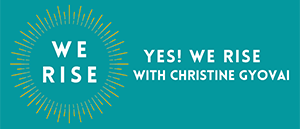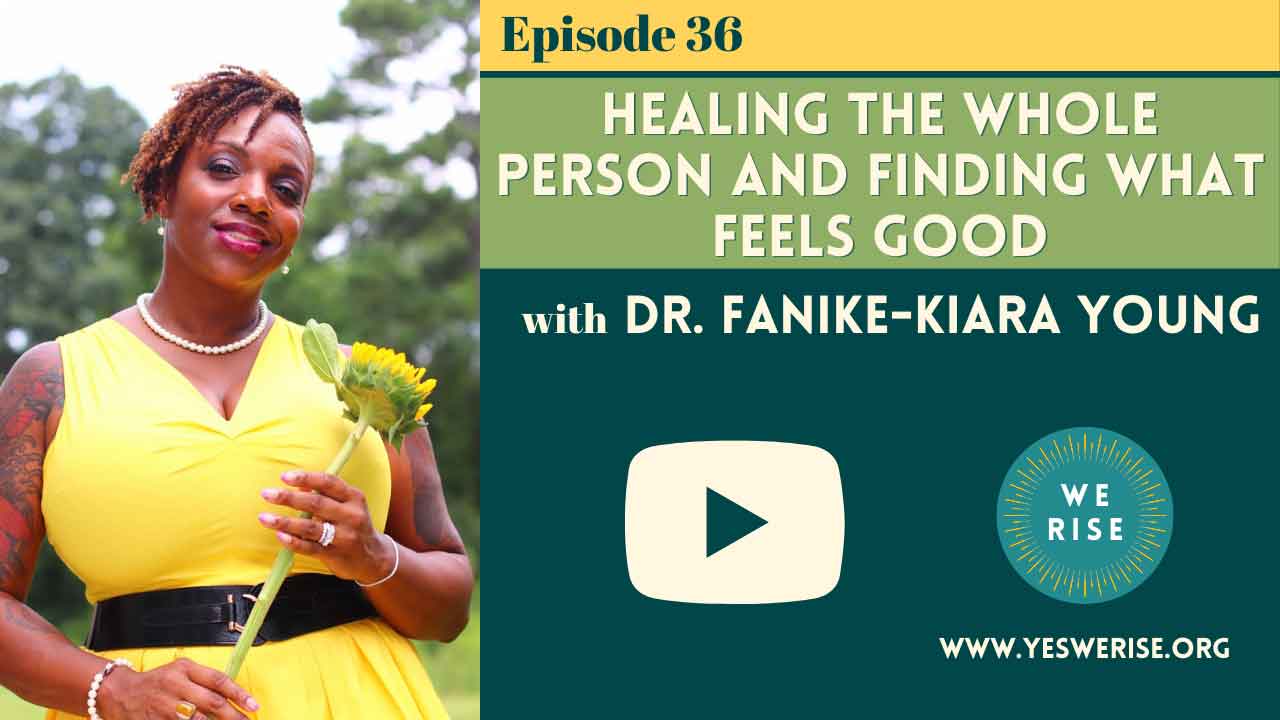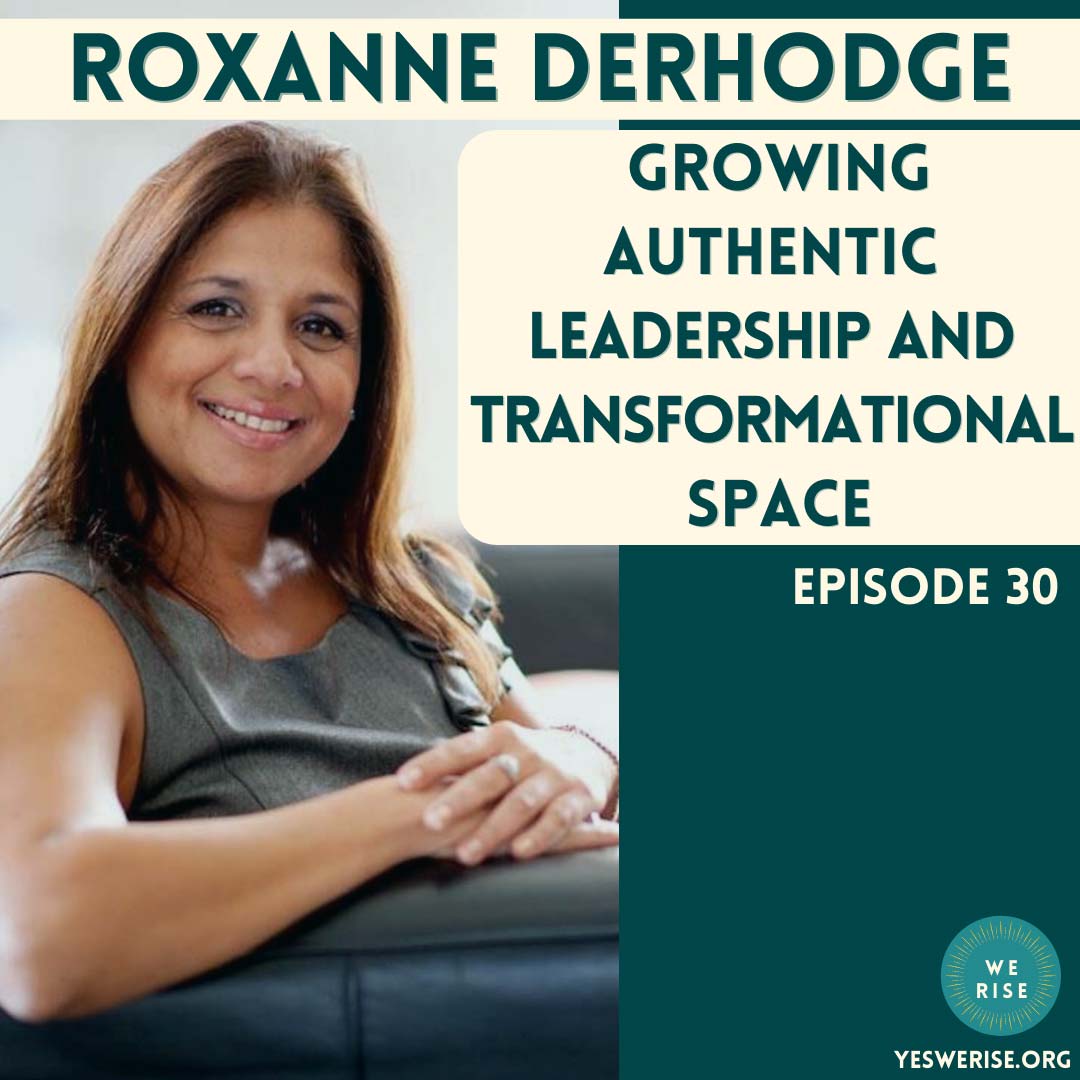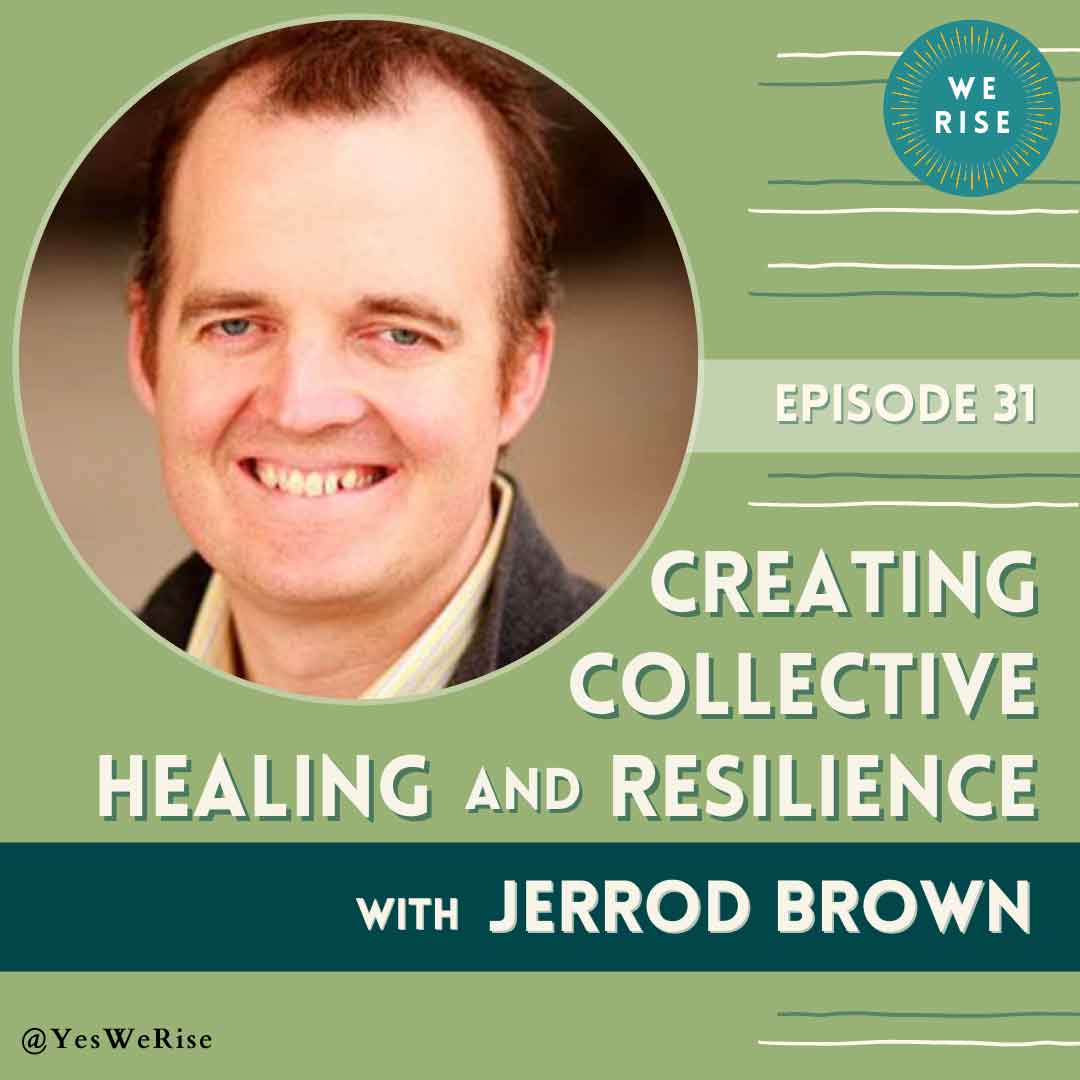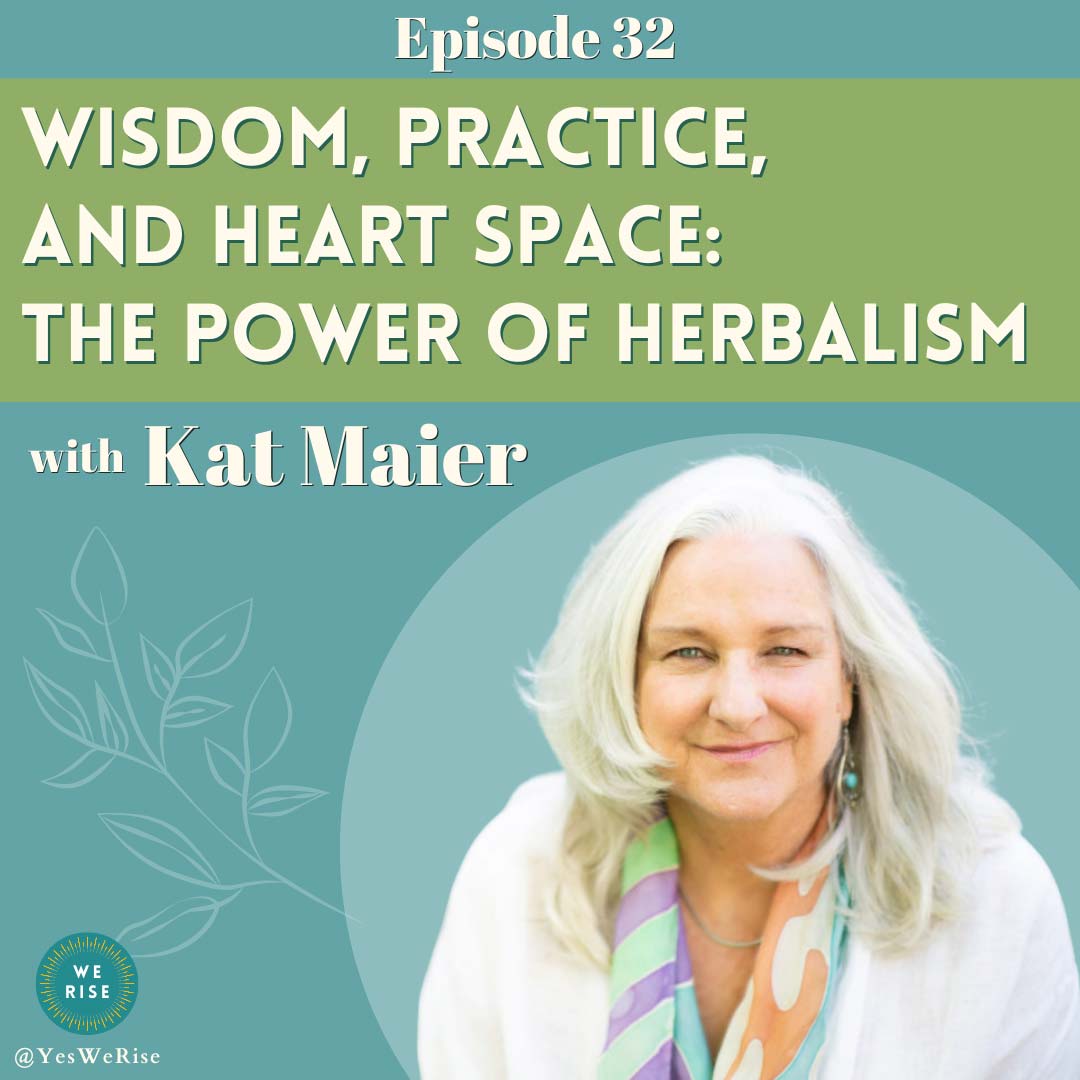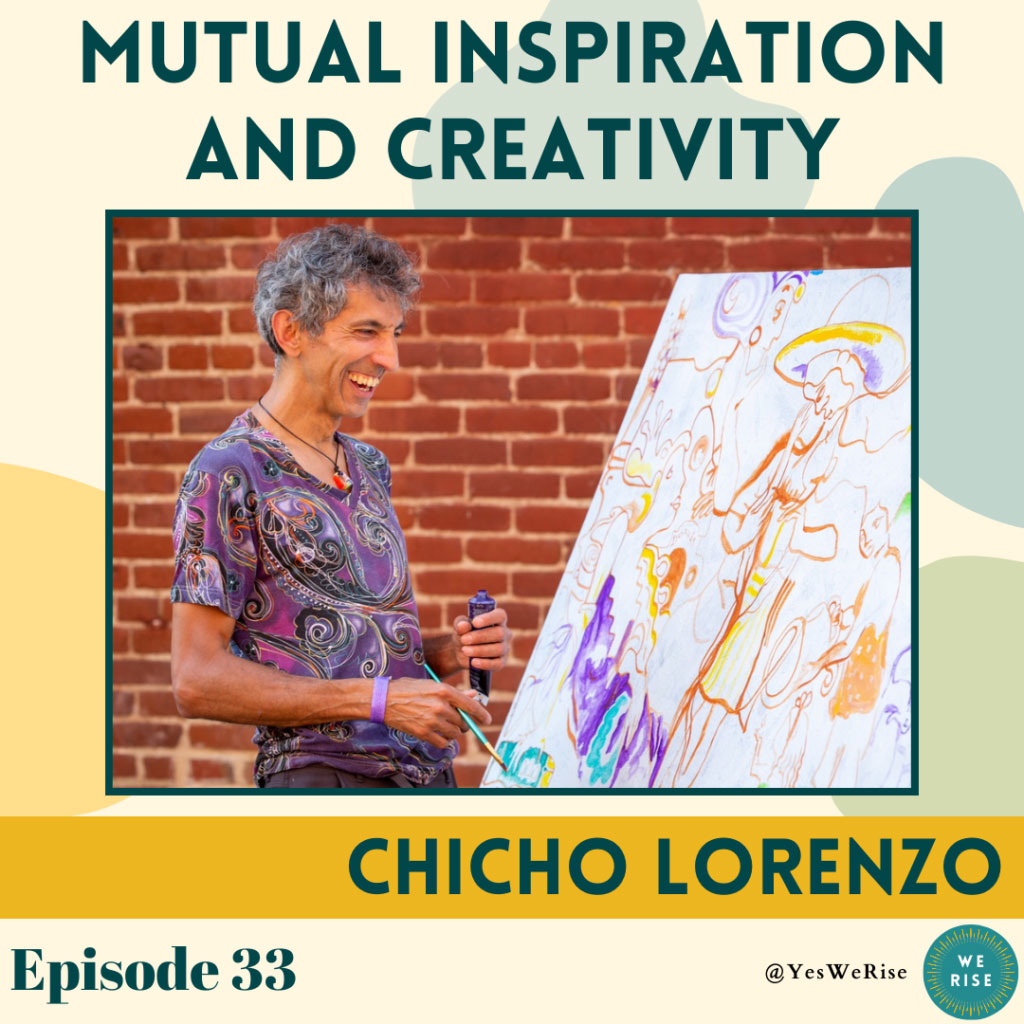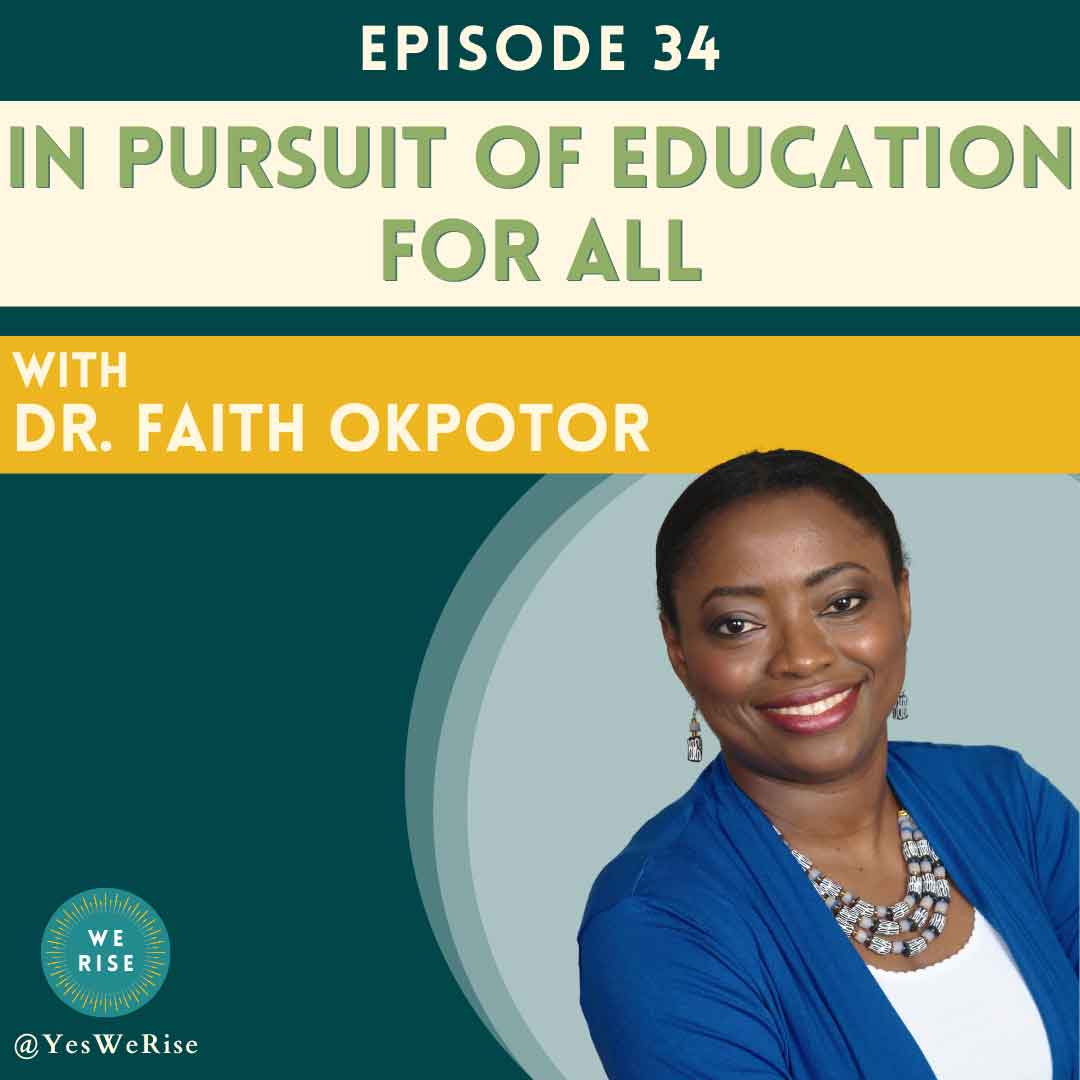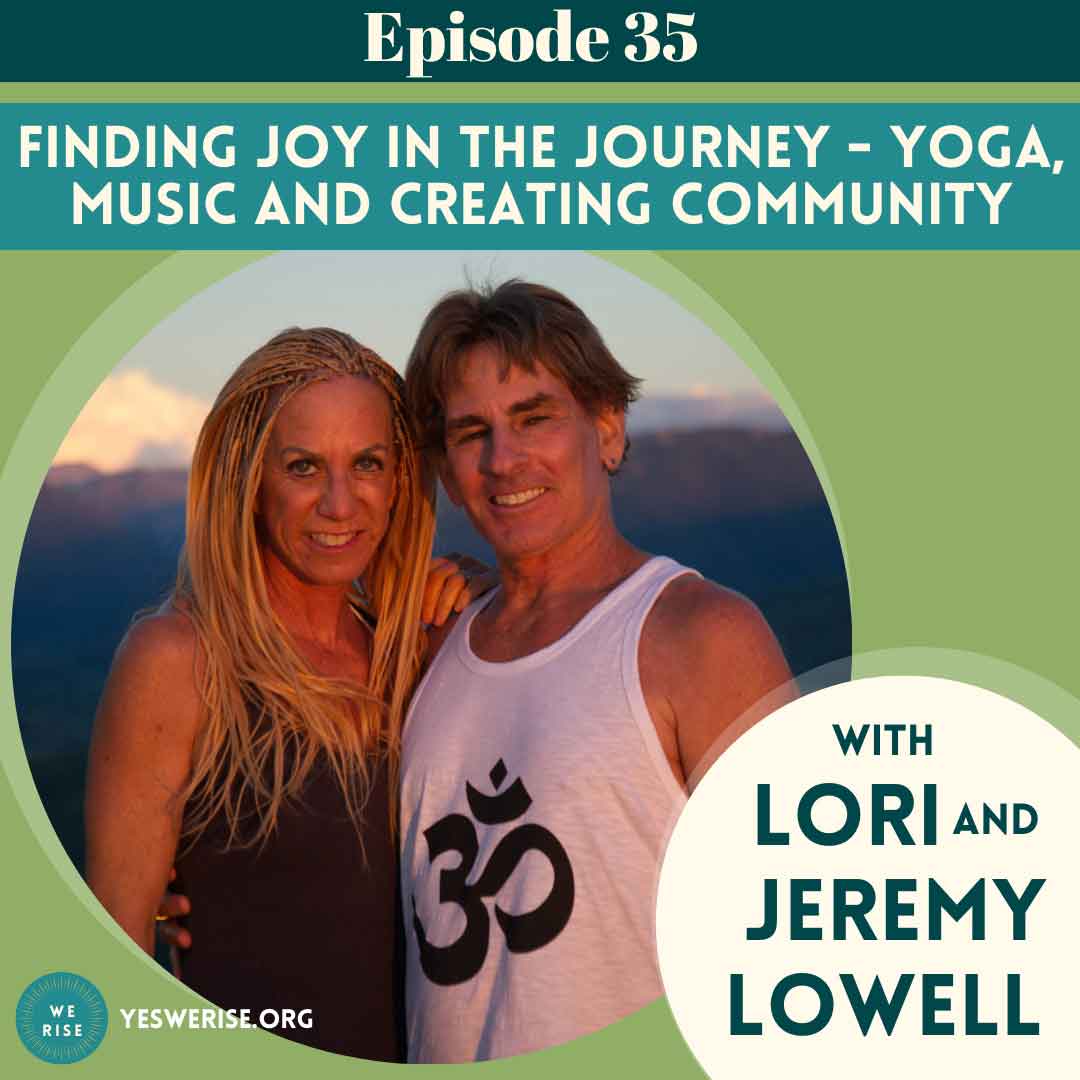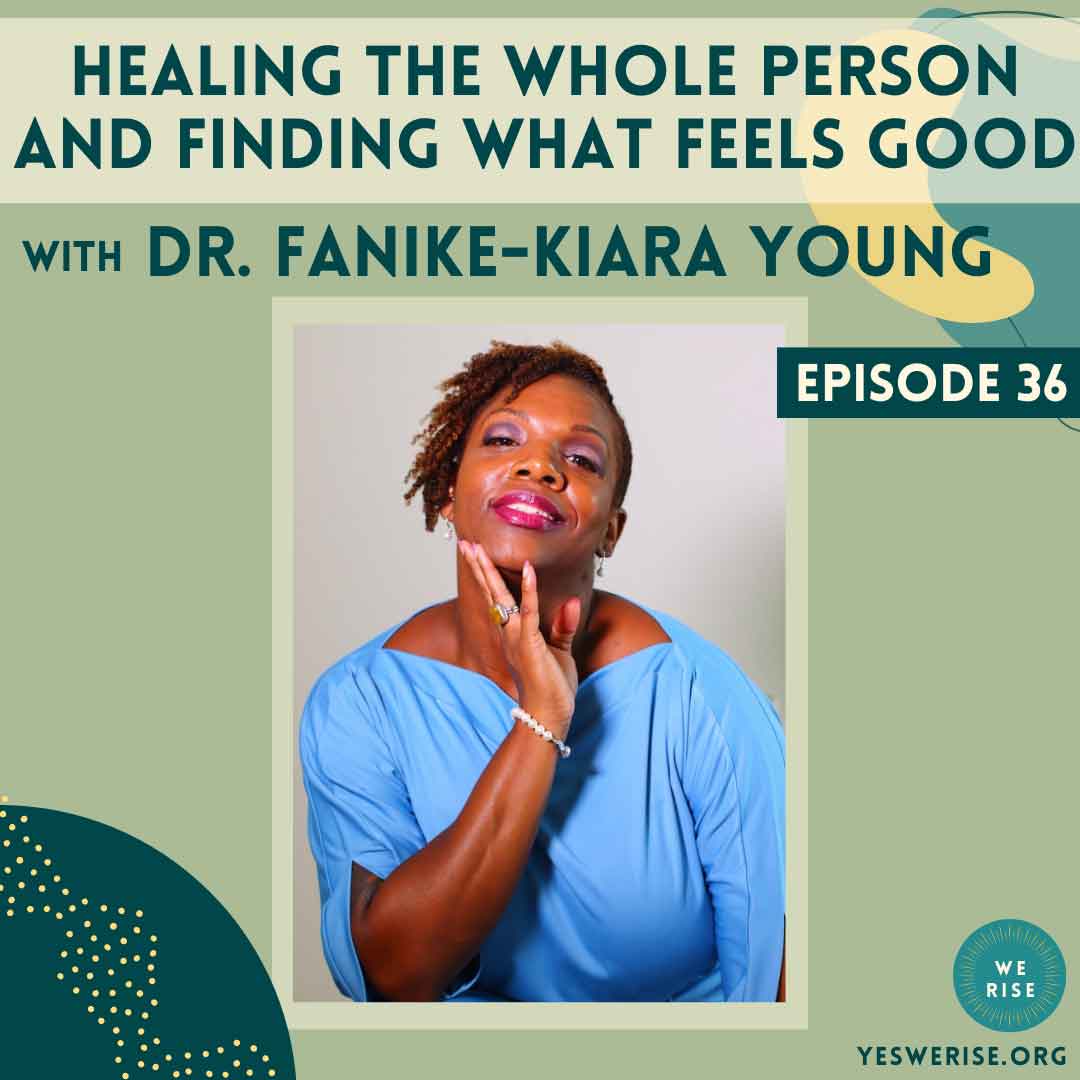
Episode 36:
Healing the Whole Person and Finding what Feels Good with Dr. Fanike-Kiara Young
Listen to the podcast on your favorite platform:
Apple Google Play Stitcher Spotify Amazon Music
Episode 36 Description
It is such a joy to welcome Dr. Fanike-Kiara Young back to the Yes! We Rise Podcast. Dr. Fanike-Kiara Young is a master healing alchemist, a corporate wellness quality improvement expert, and a corporate trainer. She is a licensed trauma therapist and focuses on healing the whole person.
Dr. Fanike has transformed her own trauma, and now helps women entrepreneurs overcome their negative thought patterns and limiting beliefs so they can step into who they want to be. Today she opens up about her healing journey, the importance of creating safe spaces in the work environment, and the impact of running a business with a human-centered focus.
If you missed Dr. Fanike’s previous appearance on the Yes! We Rise Podcast, Episode 26, be sure to take a listen!
Download the show Notes
find this episode on youtube
Key takeaways
A lifelong journey of healing
Dr. Fanike-Kiara Young was born in Brooklyn, New York in the 1980s. It was a time of crack cocaine, sex, and rock and roll, and she was exposed at an early age to violence, drug use, and crime. At the age of four, she witnessed her first murder. At home the trauma continued with an abusive father toward her mom. At just 6 years old, Dr. Fanike’s dad passed away.
Growing up, there was never conversation about the traumas she experienced. Everything was kept inside, and there was no safe space to acknowledge, process, or heal. It was in her 30’s when her struggles came to a tipping point and she finally learned how to navigate and begin her healing journey.
One of Dr. Fanike’s most radical realizations was that healing trauma requires active participation, not only in one area, but holistically. To fully heal, we must care for every part of ourselves: physical, emotional, mental, spiritual, financial, and energetic. Only when we tend to all aspects of who we are can we heal.
In a recent example, on Mother’s Day, Dr. Fanike made plans to spend the day with her family, including her mom. She organized a trip to the aquarium and a nice dinner out, ultimately met with lackluster and little gratitude from her mom. In the following days she felt dysregulated and off, and when reflecting on things, she realized her mom’s reaction had triggered her past trauma and old narratives from childhood of not being enough.
Trauma work and healing is a lifelong journey. When we recognize our triggers, we can then decide what to do with or from that. We can access our coping skills and make different choices moving forward.
Normalizing mental health in the corporate world
In Dr. Fanike’s words, “we all have emotions. We all have things that come up; we all have lives outside of work.”
This is why enjoying our time off and taking mental health breaks is so important to our fulfillment. When a person isn’t able to care for themselves, they will push themselves beyond their limits, which is a recipe for burnout and dissatisfaction with their job.
Dr. Fanike believes that going through the pandemic, in many ways, pulled the curtain back on real life. It revealed people’s lives beyond their day to day work environment. When we acknowledge this humanity, we begin respecting each other and the space a person may need.
Entrepreneur Magazine featured an article about a CEO who implemented a four day work week at his company. He doesn’t set specific hours, but tracks his team’s time to ensure their limit is not exceeded. As a result, his employees are enthusiastic about their jobs and actually far more productive.
If corporations emphasized the value of self-care and encouraged prioritizing mental health, employee productivity would increase.
Dr. Fanike strongly encourages having someone that employees and leadership can go to when something comes up. Along with the provision and normalization of daily wellness activities, a company has the ability to transform what the work environment looks like and in the process have satisfied, present, and enthusiastic employees.
Listening to what feels right
Imagine if we were okay with ourselves and other people not doing things or not forcing things. What if we stopped doing stuff even when we don’t want to do it?
This is the power of listening and trusting intuition.
What feels good to you?
Dr. Fanike explains that it’s not about what makes sense or what adds up, but what feels good. When working with her clients on an individual level or in a corporate space, she invites people to ask what feels good for them at that time.
When we do something knowing we aren’t in tune with, it’s inauthentic to who we are at our core and can cause misalignment.
All people come with a past and baggage, along with their own individual traumas and issues. Teams and businesses must recognize this and create space for employees to express their feelings or to share their struggles. It is not just top down or employees up, it’s both.
Companies must create safe spaces to be human, and employees must advocate for what they need.
notable quotes from DR. FANIKE-KIARA YOUNG
“Companies would get way more productivity out of their employees if they said, ‘Hey, we value you taking care of yourself. If you need a mental health day, take a mental health day.’”
“There has to be a culture or an introduction of the culture of care, and people have to be allowed that space to process their feelings and emotions, or it will lead to burnout. And that’s on a professional level and a personal level.”
“If a person does not view themselves as worthy of being cared for or care for themselves, they will just push it. And what happens is they start to prioritize the job over themselves, and a lot of that comes from fear. ‘If I don’t, then will I lose my job?’ Or, you know, ‘will there be sanctions?’ Or ‘will something happen?’”
“We can forget to humanize each other and we start to view ourselves as like these robots and these machines that are just working. And it’s like, no, I have a whole life outside of work.”
“We have to just become okay with ourselves and other people not doing things or not forcing things and doing stuff even when they don’t want to do it.”
LINKS/RESOURCES MENTIONED
Learn more about Dr. Fanike-Kiara Young and her work through her website. You can also follow Dr. Fanike on LinkedIn, Instagram and Facebook.
Listen to Dr. Fanike’s first appearance on the Yes! We Rise Podcast, Episode 26!
The Yes! We Rise podcast features solutions-seekers, change-makers, and those creating a resilient future. We share stories and strategies to inspire action to build resilience and community transformation. To create change, people need to feel like they belong and that they are part of a growing movement. They need to know their voice matters and that they have the inspiration, agency and ability to transform their lives and their communities. They are the key to a resilient future.
From the Navajo Nation to the mountains of Appalachia, incredible work is being done by community members and leaders. Change is often sparked by inspiration: seeing what others have done, especially in similar situations and places. People see that when someone looks like them or lives in a place like theirs, and has created real, true and lasting change, change that will allow their granddaughters and grandsons to thrive — they begin to imagine what might be possible for them. No longer waiting for someone else to come and save them, they realize they are the ones they have been waiting for. But what creates that spark? What creates that inspiration? Learning through stories and examples, feeling a sense of agency and belonging, and getting fired up to kick ass creates that spark.
We Rise helps community leaders and members learn to forge a new path toward creating resilience and true transformation. One person at a time, one community at a time, one region at a time, the quilt of transformation can grow piece by piece until resilience becomes the norm instead of the exception. Together, we rise.
Links/resources mentioned
Learn more about Dr. Fanike-Kiara Young and her work through her website. You can also follow Dr. Fanike on LinkedIn, Instagram and Facebook.
Listen to Dr. Fanike’s first appearance on the Yes! We Rise Podcast, Episode 26!
The Yes! We Rise is produced by Dialogue + Design Associates, Podcasting For Creatives, with music by Drishti Beats.
Follow Yes! We Rise on Facebook and Instagram.
Please rate, review, and subscribe to the podcast so we can continue spreading our message far and wide. Find our email list at the website: www.yeswerise.org. Thanks for listening.
The Yes! We Rise podcast features solutions-seekers, change-makers, and those creating a resilient future. We share stories and strategies to inspire action to build resilience and community transformation. To create change, people need to feel like they belong and that they are part of a growing movement. They need to know their voice matters and that they have the inspiration, agency and ability to transform their lives and their communities. They are the key to a resilient future.
From the Navajo Nation to the mountains of Appalachia, incredible work is being done by community members and leaders. Change is often sparked by inspiration: seeing what others have done, especially in similar situations and places. People see that when someone looks like them or lives in a place like theirs, and has created real, true and lasting change, change that will allow their granddaughters and grandsons to thrive — they begin to imagine what might be possible for them. No longer waiting for someone else to come and save them, they realize they are the ones they have been waiting for. But what creates that spark? What creates that inspiration? Learning through stories and examples, feeling a sense of agency and belonging, and getting fired up to kick ass creates that spark.
We Rise helps community leaders and members learn to forge a new path toward creating resilience and true transformation. One person at a time, one community at a time, one region at a time, the quilt of transformation can grow piece by piece until resilience becomes the norm instead of the exception. Together, we rise.
